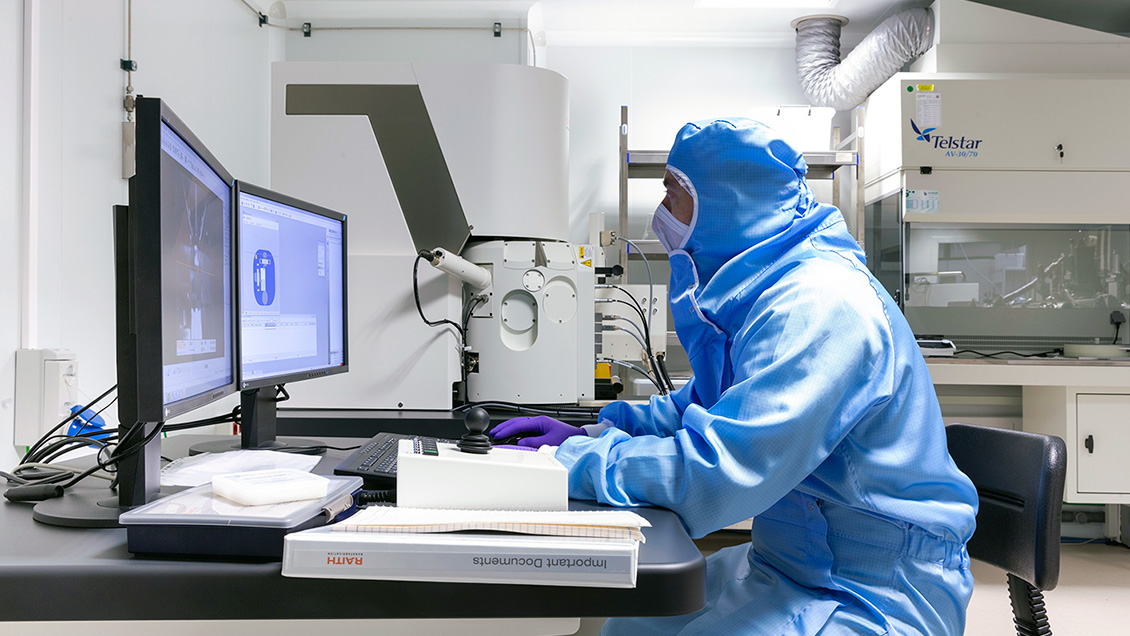The Institute of Molecular Science (ICMol) of the University of Valencia works on the development of fabrics for the manufacture of Personal Protective Equipment (PPE) based on MOF, porous materials capable of acting effectively against bacteria and toxic agents. The INNOTEX project, which also pursues a PPE model that is respectful of users, has the collaboration of AITEX and the financing of the Valencian Innovation Agency (AVI).
MOFs (Metal-Organic Frameworks) are very porous materials whose versatility allows the design of advanced materials with very diverse properties. Their ability to trap compounds within their molecular cavities allows them to implement different routes and thus modify their properties. This factor gives MOFs an enormous application potential, already visible in fields such as gas storage, carbon capture or catalysis of chemical reactions, among many others.
In 2020, the Chem (Elsevier) journal published the synthesis of MUV-101*, a new family of highly efficient and chemically stable titanium MOFs, capable of degrading an analogue of Sarin gas – a fluid classified as a weapon of mass destruction – in a manner very similar to how enzymes do it, which are the biological catalysts par excellence. Hence the possibility of using MOFs to eliminate toxic agents in atmospheric conditions, of great interest both in matters of security and defense –threats of chemical warfare– as well as the environment –personal protection against strong insecticides, decontamination of waters, etc.
The main researcher of this work is Carlos Martí-Gastaldo, director of the FUNIMAT group of ICMol and responsible for the INNOTEX-Innovative technical fabrics for EPI project with improved activity against organophosphoesters, through which MUV-101 is prepared for its transfer to the textile sector in the field of protective equipment. The project has recently been selected by the Valencian Agency for Innovation (AVI) for financing through the 2021 call in the line of valuation, transfer and exploitation of R & D & i results.
PPEs that protect and breathe
Increasing the level of protection of PPEs, lengthening their life span and making them more user-friendly, improving their breathability and comfort, are some of the aims pursued by R & D & i in this field.
INNOTEX consists of providing active protection to certain very light, flexible and friendly textiles for their use, using MUV-101, whose patent belongs to the University of Valencia. “It is about designing textile materials that are effective against organophosphoesters, which are compounds used as pesticides, herbicides or nerve agents in chemical warfare; and prepare them for the manufacture of PPE”, comments Martí-Gastaldo. “MUV-101 is a material that could allow the active protection of PPE, not only preventing users from coming into contact with the toxic agent to which they are exposed, but also eliminating it in contact with water. This would simplify the PPE decontamination process after use and extend the life of the protective equipment”, adds the scientist.
For this, the project has the collaboration of the Textile Technological Institute (AITEX), which will deal with the introduction of MOF in the synthetic polymer to obtain functionalised filaments by fusion spinning, as well as semiindustrial manufacturing of the fabric. “Our know-how covers the entire value chain, from the manufacture of fibres and filaments to obtaining prototypes in the form of a final product”, explains Javier Pascual, head of the Research Group on Technical Fibres and Nanotechnology at AITEX. “Our objective is to help companies develop new products from the knowledge of the different textile processes, validating the properties sought in the final prototypes for their rapid introduction into the market.”
The project has a duration of three years.


